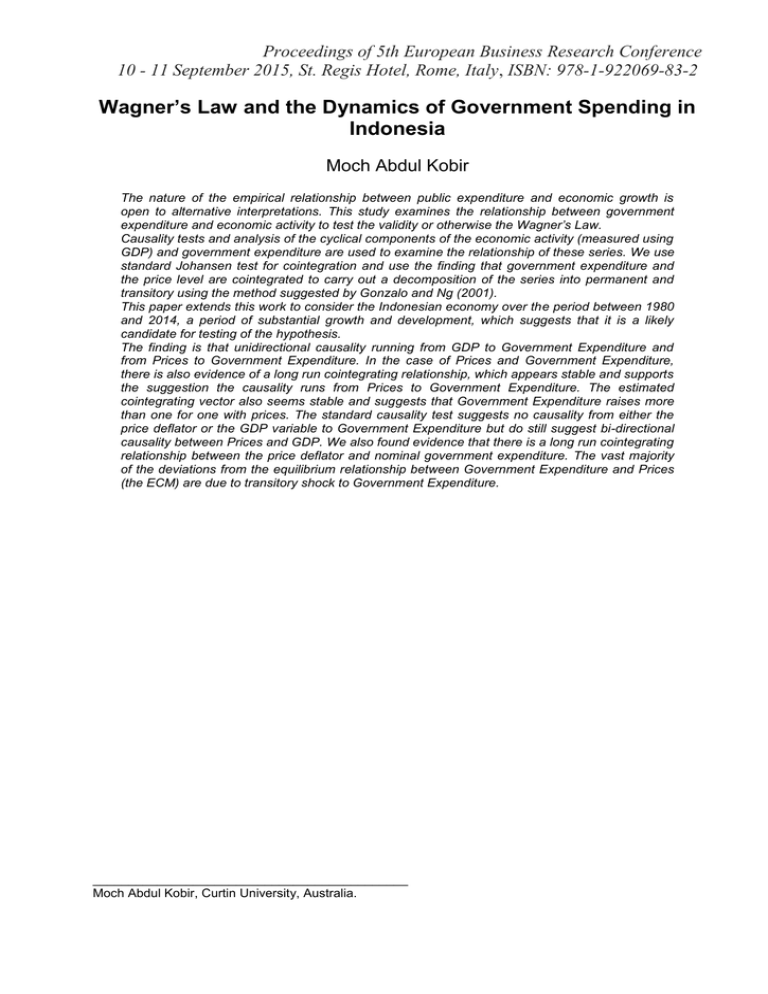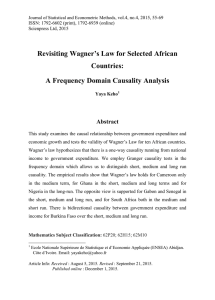Proceedings of 5th European Business Research Conference
advertisement

Proceedings of 5th European Business Research Conference 10 - 11 September 2015, St. Regis Hotel, Rome, Italy, ISBN: 978-1-922069-83-2 Wagner’s Law and the Dynamics of Government Spending in Indonesia Moch Abdul Kobir The nature of the empirical relationship between public expenditure and economic growth is open to alternative interpretations. This study examines the relationship between government expenditure and economic activity to test the validity or otherwise the Wagner’s Law. Causality tests and analysis of the cyclical components of the economic activity (measured using GDP) and government expenditure are used to examine the relationship of these series. We use standard Johansen test for cointegration and use the finding that government expenditure and the price level are cointegrated to carry out a decomposition of the series into permanent and transitory using the method suggested by Gonzalo and Ng (2001). This paper extends this work to consider the Indonesian economy over the period between 1980 and 2014, a period of substantial growth and development, which suggests that it is a likely candidate for testing of the hypothesis. The finding is that unidirectional causality running from GDP to Government Expenditure and from Prices to Government Expenditure. In the case of Prices and Government Expenditure, there is also evidence of a long run cointegrating relationship, which appears stable and supports the suggestion the causality runs from Prices to Government Expenditure. The estimated cointegrating vector also seems stable and suggests that Government Expenditure raises more than one for one with prices. The standard causality test suggests no causality from either the price deflator or the GDP variable to Government Expenditure but do still suggest bi-directional causality between Prices and GDP. We also found evidence that there is a long run cointegrating relationship between the price deflator and nominal government expenditure. The vast majority of the deviations from the equilibrium relationship between Government Expenditure and Prices (the ECM) are due to transitory shock to Government Expenditure. ____________________________________________ Moch Abdul Kobir, Curtin University, Australia.


